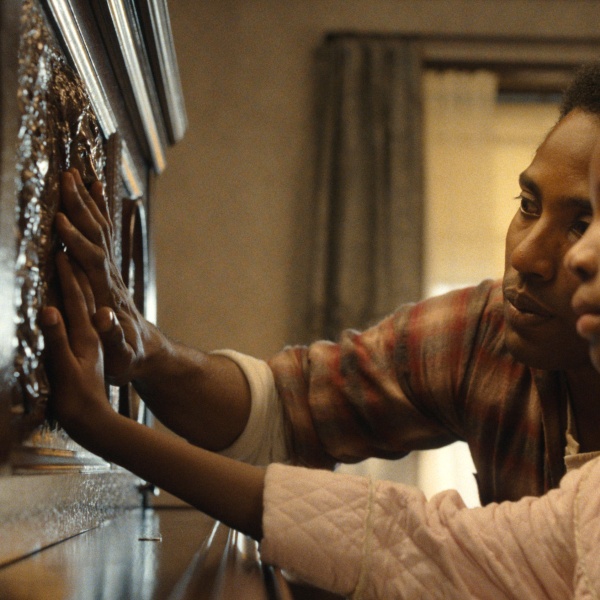Lee Daniels‘ first foray into horror filmmaking, “The Deliverance,” just dropped on Netflix, but it’s a subject — and a genre — that has been on the director’s mind since he made “Precious” 15 years ago. That’s when he first heard the true account of a family besieged by evil spirits on which “The Deliverance” is based. “I was very intrigued by this story,” Daniels told IndieWire’s Filmmaker Toolkit podcast, “and I was intrigued by the idea of doing horror because I’m obsessed with ‘The Exorcist.’ I’m obsessed with ‘Rosemary’s Baby.’ I’m obsessed with ‘The Omen.’”
That obsession has yielded one of Daniels’ most audacious films yet, which is saying something when you’re talking about the filmmaker behind such singular works as “The Paperboy,” “The United States vs. Billie Holiday,” and the television series “Empire.” What makes “The Deliverance” great is the way that Daniels delivers the satisfactions of the horror classics that he loves but reinvents and breathes new life into them by placing the tropes in a completely new context.
Applying the lessons learned from “The Exorcist” and “Rosemary’s Baby” to a story set in the Black community was always part of the appeal “The Deliverance” held for Daniels. “I didn’t know that we had seen that kind of groundedness in a world that’s Black on screen,” he said. Yet back when Daniels initially thought about making “The Deliverance,” something pulled him back from embarking on the project.
“I pulled out at the last minute because my mom freaked out,” Daniels said. “We believe in these spirits, both good and bad, and she felt that they would jump on me. It sounds corny, but she really had me convinced.” Daniels’ deeply held religious beliefs (along with his resistance to tell another story dealing with abuse so quickly after “Precious”) kept him from moving forward with the movie, but they ultimately also gave him the key to reviving it.
“Something about Trump made me do it,” Daniels said. “I felt something dark and that the world as we know it may not be around for long. LaToya [the woman whose true story provided the inspiration for ‘The Deliverance’] found her light — it’s not about jump scares, it really is about a spiritual awakening. Once I got that take on it and understood how to tell the story, I felt that was the way to go.”
Daniels also felt that creating a little distance between himself and the true story — and thus any actual evil spirits that might come for him and the production, as has long been rumored happened on the original “Exorcist” — was the right approach. That led to the creation of Alberta, the fictional white mother of Andra Day’s protagonist Ebony. “Where I grew up, there are these white women in every neighborhood who only date Black men,” Daniels said. “They have Black kids and grandkids and are embraced by the Black community. I wanted to bring that person to life because Black people know her, and they’ve just never seen her [on screen] before.”

Alberta is played by Glenn Close in a spectacularly bold, vanity-free performance that should, if there is any justice in the world, finally get her the Oscar she has long deserved. “Glenn did not know what she was walking into,” Daniels said. “She just wanted to work with me. I told her to put on a little bit of weight and then I told the costumer to come in and nip-tuck the costumes and she said, ‘What is this? What am I doing?’ It took her a second really to learn [Alberta] and to drop into her.”
Close may have been apprehensive about her director’s approach to her character — one that required her to gain weight, wear flashy nails and makeup, and go bald and rely on an assortment of wigs — but ultimately Daniels feels she embraced it and felt as liberated by the role as audiences feel watching it. “In the Hollywood that she comes from, which is pretty much the Hollywood I come from, a body has to look a certain way,” Daniels said. “But in the African American community, the body is…you own it, whatever it is, and you have power over it, and you’re sexy in it. Once she tapped into that and understood that she was sexy no matter how she looked, her attitude was gold. She got it, and it was magic.”
Just as Daniels’ actors were required to be brave on “The Deliverance,” Daniels himself had to face his fears not only about the subject matter but about the problems posed by horror filmmaking itself. “The tone was challenging to me, which is the reason why I wanted to do it,” Daniels said. “I knew that it would stretch a muscle that I hadn’t used, that it would make me afraid, and I’m not good unless I’m afraid. I don’t do well unless I know that I’m in a territory that I can either sink or swim in. Otherwise I’m not interested in doing it.”
That said, Daniels feels that now that he has risen to the challenge of making a horror film he’s not likely to return to the genre. “Honestly, it’s the hardest thing I’ve ever done,” he said. “I’ll never do it again. Check that box. Next, off to do a superhero movie.”


